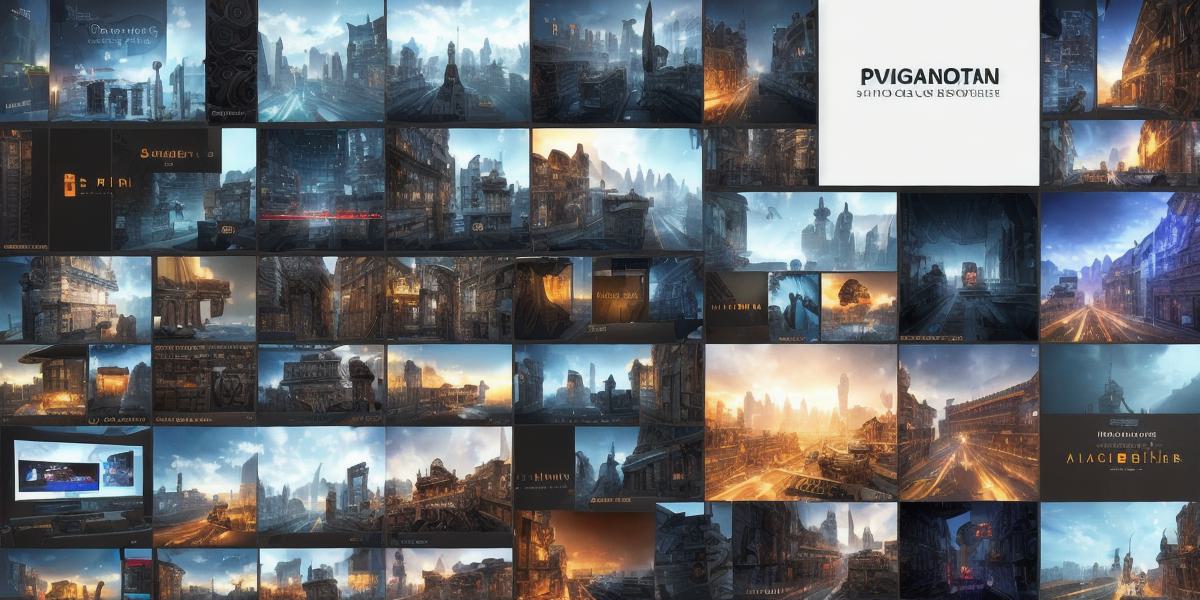The game development industry is one of the fastest-growing industries in the world, and it’s no surprise that more people are looking to break into this exciting field. But where do you start? This article will provide a step-by-step guide for beginners on how to find junior game development jobs.
Step 1: Learn the Skills
Before you can even consider finding a job, you need to have the skills to qualify. Game development requires a wide range of skills, including programming, design, art, and animation. To get started, there are many online courses and tutorials available that can teach you the basics of game development. Some popular platforms include Udemy, Coursera, and Codecademy.
Programming is a crucial skill for game developers to know. You should have experience with at least one programming language such as C++, Java, or Python. Game engines like Unity and Unreal Engine also require knowledge of their respective scripting languages.
Design skills are also essential for game development. You should be familiar with game design principles, such as level design, user interface design, and character modeling. Art and animation skills can also help you stand out as a junior game developer.
Step 2: Build a Portfolio
Once you’ve learned the skills, it’s time to build a portfolio showcasing your work. Your portfolio should include examples of games you’ve created, as well as any relevant code or design documents. You can also include personal projects or experiments that demonstrate your creativity and problem-solving abilities.
Your portfolio is your chance to showcase your skills and demonstrate your passion for game development. Make sure your portfolio is well-organized, easy to navigate, and visually appealing. Highlight your best work and explain the challenges you faced while creating it.
Step 3: Network
Networking is key in the game development industry. Attend conferences and meetups, join online forums and communities, and connect with other game developers on social media. This will not only help you learn from others but also give you the opportunity to make connections that could lead to job opportunities.
Joining gaming communities can be a great way to network with other game developers. Websites like Reddit’s r/gamedev, GameDev.net, and GamedevJobs.com are popular destinations for game developers to connect, share their work, and find job opportunities.
Step 4: Look for Job Listings
There are many websites that list job openings in the game development industry. Some popular sites include Indeed, Glassdoor, and LinkedIn. When looking for a junior game development job, be sure to filter your search by location and experience level.
When searching for job listings, it’s important to read the job description carefully and make sure your skills match the requirements. Also, take note of the company culture and see if it aligns with your values and interests.
Step 5: Apply for Jobs
When you find a job listing that matches your skills and experience, it’s time to apply. Your resume and cover letter should highlight your relevant experience and skills. Be sure to customize your application for each job you apply for, and don’t be afraid to ask for feedback or guidance from mentors or peers.
When applying for a job, make sure to include links to your portfolio and any other relevant work samples. Also, be prepared to answer questions about your experience and why you want to work for the company.

Step 6: Prepare for Interviews
If you’re selected for an interview, it’s important to prepare. Research the company and the position, practice answering common interview questions, and come up with a list of questions to ask the interviewer. Dress professionally, arrive on time, and be confident and engaging during the interview.
During the interview, be prepared to showcase your skills and explain how you’ve applied them in the past. Also, be ready to discuss any challenges you faced and how you overcame them.
Step 7: Consider Freelancing
If you’re having trouble finding a full-time job, consider freelancing. This can give you more flexibility in your schedule and allow you to work on projects that interest you. Websites like Upwork and Fiverr offer a platform for freelancers to connect with clients and find work.
Freelancing can also be a great way to gain experience and build your portfolio. You can work on various projects, such as game design, programming, art, and animation, and showcase them in your portfolio.
In conclusion, finding a junior game development job requires hard work, dedication, and the right skills. By following these steps, you can increase your chances of landing your dream job in the game development industry. Remember to never stop learning and improving your skills, as the gaming industry is constantly evolving, and new technologies are emerging all the time.
